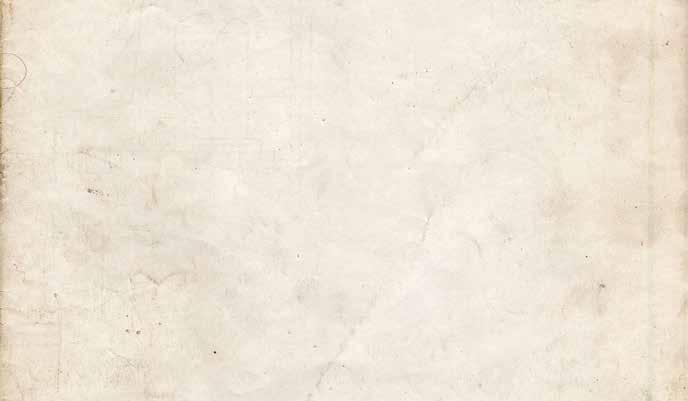
5 minute read
Postcards from the New Republic
The ‘Postcards from the New Republic’ series is a hat tip to British designer, artist, entrepreneur and Socialist William Morris’s News from Nowhere series of articles from 1890 published in the Commonweal, the newspaper of the Socialist League and set in a distant future where Morris’s socialist, and romantic, utopia has been secured. Our story’s protagonists are Willa Ní Chuairteoir and Lucy Byrne accompanied by their four children James, Afric, Banba and Alroy who together enjoy and endure the equity and exigency of the future’s New Republic. To check in with the family visit: fb.me/PostcardsfromtheNewRepublic
POSTCARDS FROM A BY SINÉAD NÍ BHROIN NEW REPUBLIC
Bang, bang, bang. Alroy shakes his sleeping Mammies. Bang, bang, bang. “Jesus Mary, what’s wrong son?” Lucy asks as she sits up with a start. Bang, bang, bang. “There’s someone banging at the backdoor Ma, they sound really upset.”
Lucy shakes Willa. “Wake up. There’s someone at the door and it sounds urgent.” Pulling on dressing gowns, they run downstairs switching on all the lights as they go.
As they go into the kitchen Willa takes a wooden spoon out of a drawer and tells Lucy to stand back once she opens the backdoor. Lucy tells her wife not to be so ridiculous, that it will be someone they know. Willa rolls her eyes and says, “For once in your life Lucy just do what I ask. We’ve your mother upstairs with the kids. Don’t be so reckless” Lucy sighs and looking at Willa nods her head silently counting to three and opens the door.
Before she has the door half open Jenny rushes in and then just stands in the middle of the kitchen, not sure what to do next. Willa gently puts her arm around Jenny and asks, “Will we get James?”. Jenny whimpers “yes”, and starts to sob into Willa’s shoulder.
Lucy goes upstairs. All four kids are in their Nana’s bedroom. Lucy closes the door behind her and sinks into one of the old crushed velvet armchairs in Eileen’s room that she brought from her house in Dublin.
“James love, its Jenny. She’s in a terrible state.” James jumps up and before he can get out the door Lucy pulls him back. “Listen love. We don’t know what’s happened, so when you go downstairs just reassure Jenny’s that she’s safe. We need to find out what’s going on but don’t force it. She will tell us in her own time.”
Jenny is James’s best friend. Her Mam, Lizzie, died just a couple of days ago. Cancer. Lizzie told no-one until it was too late refusing treatment following her diagnosis.
After a lifetime of bullying and abuse at the hands of her husband Lizzie embraced her diagnosis. Finally, a way out. Over the course of 25 years together John had beaten every ounce of Lizzie’s self-esteem out of her.
After two still births Jenny’s arrival felt like a lifeline. A chance for John and Lizzie to start anew with their beautiful baby girl. John adored Jenny, so he would wait till she was asleep or out of the house to beat her Mum to within an inch of her life although never her face, or her arms.
Jenny didn’t fully understand what was going on at home until it was too late. John was an anomaly. Domestic violence had been mostly eradicated. Huge reforms of the justice system had been undertaken, coupled with

institutionalised education programmes in school and the workplace.
After Irish unity violent crime had steadily declined as equality and wellbeing improved but the scale of violence against women and girls in and outside their home remained high.
The turning point was the murder of a popular female member of the Oireachtas and the high-profile court case that followed. Day after day women walked out of work and girls
Women’s Aid National Freephone Helpline 24 hours a day, 7 days a week 1800 341 900
out of school converging on steps of the Dáil demanding action.
Since then violence in all its guises had diminished, and gender-based violence had become abhorrent within society. Yet still Jenny endured her abuse for over two decades. Days before she died, ensconced in a local hospice and her pain eased with heavy doses of morphine Lizzie finally told Jenny the truth about her Dad.
Jenny had confronted her Dad. He showed no remorse, blaming Lizzie for everything. He spoke about Jenny’s Mum in terms she couldn’t even comprehend. He called Lizzie a bitch, a woman that never stopped whining. If she had just done what he asked, made a bit of an effort with herself. He went on and on.
When he was done Jenny gathered some photos of her Mum, Lizzie’s favourite perfume and jewellery. She packed them along with her clothes and waited for her Dad to go to bed. After a couple of hours, she left her family home for the last time and walked across the village broken hearted to her best friend’s house.
James brought Jenny into the sitting room, sat her down beside him and hugged her tightly. Willa and Lucy looked on from outside the open door with tears streaming down their cheeks as they listened to Jenny tell James of the horrific abuse her Mum silently suffered for so many years.
Lucy and Willa bring in a pot of hot chocolate and a plate of homemade French madeleines. The four of them stay up a little longer while Eileen gets the spare room ready for the family’s new house mate. When everyone is finally tucked up in bed Lucy and Willa head up to the office. Ever the activists the government Minister and magazine editor start to chart out a bold domestic violence awareness campaign and new funding stream for supports and services. Lucy leans over, squeezes Willa’s hand and says, “Let’s get in trouble. Good trouble. Necessary trouble. John Lewis kinda trouble”.










